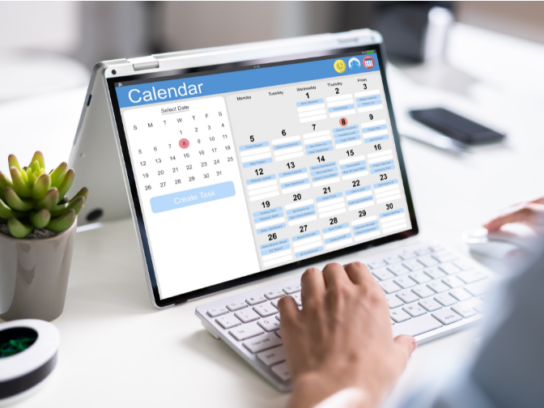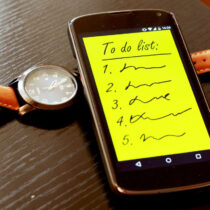
Practical strategies for better organization and less stress
When should I go grocery shopping or put in the order for pickup?
What time is Johnny’s basketball game?
Who is taking Jane to dance class?
When was the last time someone changed the furnace filter?
Did I forget to schedule Max’s annual check up?
Do any of these questions sound familiar to you? For many people life is very busy trying to balance work, household tasks, activities and things for your kids or pets, and doing all of this while also trying to take care of yourself. It can be a lot at times under the best of circumstances. When you are stressed, tired, or are dealing with temporary issues on top of the typical things, it can be even more challenging to not only get by, but thrive and be on top of everything.
In order to make things better for you and your family, here are a couple of suggestions. Everyone’s starting point may be different, so you may need to adjust these tips based on your needs and other factors.
- Do not try to rely on your memory for keeping track of events, activities, things you need to buy, and most other items. You are not only less likely to remember them and at the appropriate times, but having to try to remember a lot can be mentally taxing and potentially lead to greater stress.
- Identify a simple enough system that works for you to write down activities and events in some shape or form. Using an electronic calendar on your phone (i.e., Apple Calendar, Google Calendar) can work well. If you want a more robust calendar, consider exploring other calendar apps such as Fantastical2, Calendars, Cozi, or iCalendar (made by Symfonies). In addition, having a shared calendar with a significant other, co-parent, nanny, or anyone else involved in shared responsibilities related to activities can be beneficial. This can also help reduce unintended conflicts.
- Consider a task list of some kind to keep track of things that you need to do. Perhaps having a master list for all things with it broken down into categories (to make it more manageable and organized) could work well. Then, allocate specific time blocks or days to accomplish specific ones. Noting the intended day and time next to the task or in a calendar as an event can often work well to help with follow through. For shared task lists and for people who want to add a lot of details and do planning within the task list, an electronic one may be easiest. Todoist, TickTick, Google Tasks, and Asana are a few options worth considering. Furthermore, for those who prefer paper, keeping a long-term list electronically and writing out a daily or weekly one on paper or a whiteboard could work well.
- Take advantage of options to keep track of events and tasks on a reoccurring basis. For example, you could have a yearly reminder to schedule a physical. In addition, one could set a task notification every three months to change their furnace filter and in the task itself keep a log of the dates that it was changed.
- Regardless of what calendar, tasklist, or other written methods you use, planning and continually updating calendars and tasklists are essential for them to be useful. Having a daily and/or weekly time set aside to devote to planning in depth can help keep you on track, make it easier to catch up if you’ve gotten behind on things, and get you looking ahead to catch potential issues and address them before they start.
There are many ways to keep track of your schedule, tasks, activities and those of your family members as needed. For items that involve others, helping them to take some responsibility for tracking them themselves also can be useful and for kids and teens it teaches them how to do these things now to make it easier later on. Therefore, think about what is working and not working about any current systems you use and consider making some tweaks or if necessary more major overhauls in order to help be better organized, hopefully less stressed, and more productive.
In most cases, life doesn’t suddenly slow down and get less busy on a regular basis. However, by taking more control over your organization and planning, you can sort of slow things down a bit and make them more manageable so that you can thrive even more in your day-to-day functioning.































